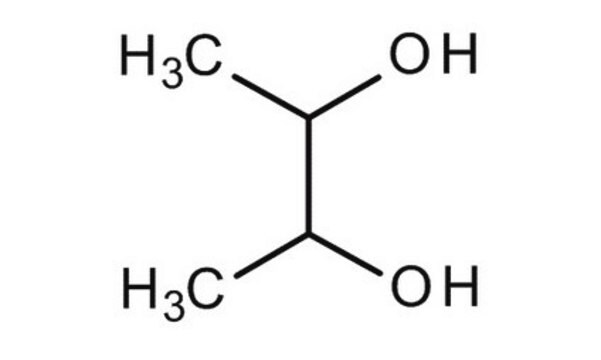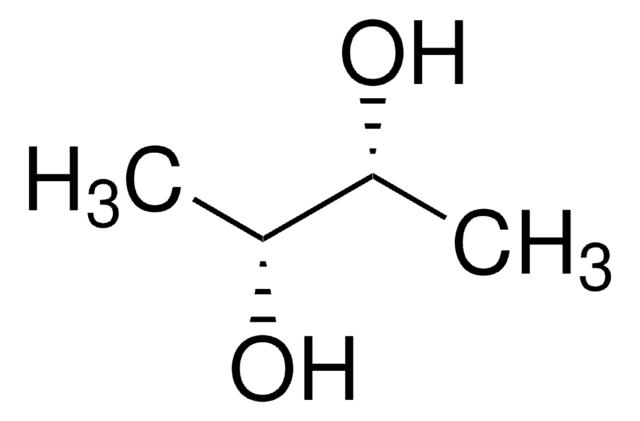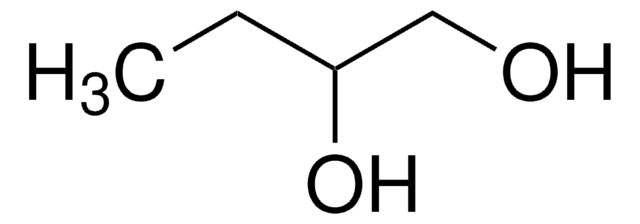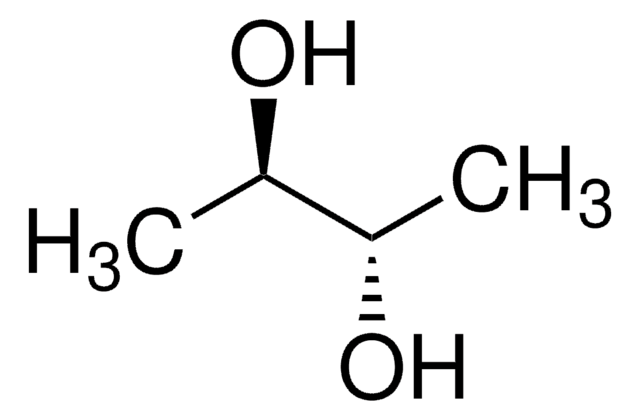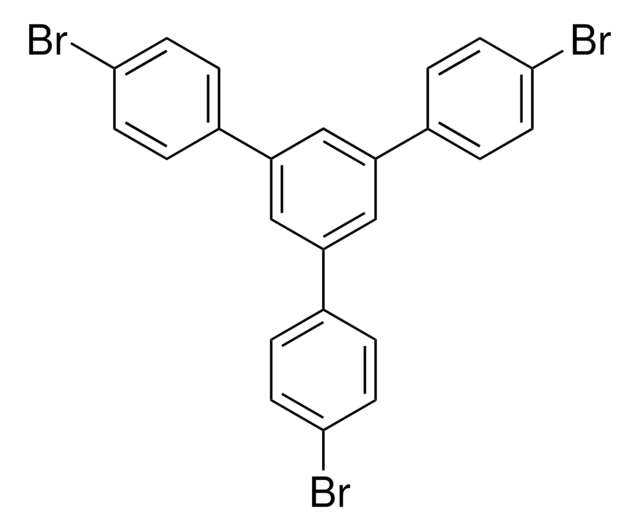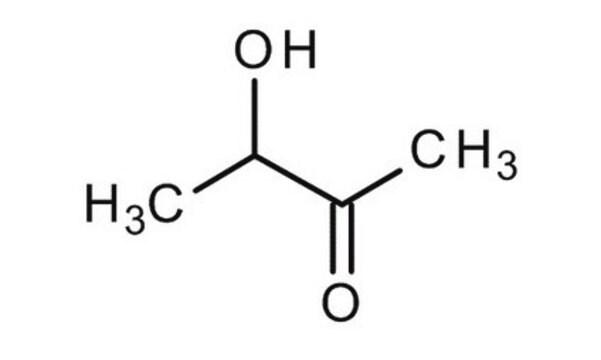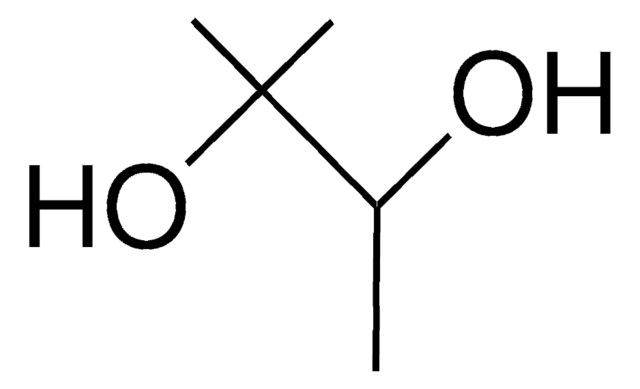Wszystkie zdjęcia(1)
Key Documents
B84904
2,3-Butanediol
98%
Synonim(y):
2,3-Butylene glycol
Zaloguj sięWyświetlanie cen organizacyjnych i kontraktowych
About This Item
Wzór liniowy:
CH3CH(OH)CH(OH)CH3
Numer CAS:
Masa cząsteczkowa:
90.12
Beilstein:
969165
Numer WE:
Numer MDL:
Kod UNSPSC:
12352100
Identyfikator substancji w PubChem:
NACRES:
NA.22
Polecane produkty
Poziom jakości
Próba
98%
Postać
liquid
współczynnik refrakcji
n20/D 1.433 (lit.)
tw
183-184 °C (lit.)
mp
25 °C (lit.)
gęstość
1.002 g/mL at 20 °C (lit.)
ciąg SMILES
CC(O)C(C)O
InChI
1S/C4H10O2/c1-3(5)4(2)6/h3-6H,1-2H3
Klucz InChI
OWBTYPJTUOEWEK-UHFFFAOYSA-N
Szukasz podobnych produktów? Odwiedź Przewodnik dotyczący porównywania produktów
Opis ogólny
2,3-Butanediol (2,3-BDO) is used as precursor in the synthesis of cyclic carbonates and methyl ethyl ketone.
Zastosowanie
- CRISPR/Cas9 in Pichia pastoris: 2,3-Butanediol (BDO) is used in the construction of P. pastoris cell factories as a representative example to demonstrate the procedures for integrating multiple heterologous genes using the CRISPR-based multiplex genome integration toolkit (Gao et al., 2024).
- Antifungal activity in sorghum: 2,3-butanediol, a metabolite of A. oryzae YRA3, can induce the production of root exudates which modulate the growth of the rhizospheric fungi and bacteria (Rashad et al., 2023).
This page may contain text that has been machine translated.
Kod klasy składowania
10 - Combustible liquids
Klasa zagrożenia wodnego (WGK)
WGK 1
Temperatura zapłonu (°F)
185.0 °F - closed cup
Temperatura zapłonu (°C)
85 °C - closed cup
Środki ochrony indywidualnej
Eyeshields, Gloves, type N95 (US)
Wybierz jedną z najnowszych wersji:
Masz już ten produkt?
Dokumenty związane z niedawno zakupionymi produktami zostały zamieszczone w Bibliotece dokumentów.
Klienci oglądali również te produkty
Natsuo Ueda et al.
Neuropharmacology, 48(8), 1079-1085 (2005-05-25)
It is widely accepted that fatty acid amide hydrolase (FAAH) plays a central role in the hydrolysis of anandamide. However, we found a second N-acylethanolamine hydrolase in animal tissues which hydrolyzed anandamide at acidic pH. This "acid amidase" was first
Xiao-Jun Ji et al.
Biotechnology advances, 29(3), 351-364 (2011-01-29)
2,3-butanediol is a promising bulk chemical due to its extensive industry applications. The state-of-the-art nature of microbial 2,3-butanediol production is reviewed in this paper. Various strategies for efficient and economical microbial 2,3-butanediol production, including strain improvement, substrate alternation, and process
E Celińska et al.
Biotechnology advances, 27(6), 715-725 (2009-05-16)
Biotechnological production of 2,3-butanediol (hereafter referred to as 2,3-BD) from wastes and excessive biomass is a promising and attractive alternative for traditional chemical synthesis. In the face of scarcity of fossil fuel supplies the bio-based process is receiving a significant
Frank Plaisant et al.
Free radical biology & medicine, 34(7), 862-872 (2003-03-26)
The pathophysiology of brain lesions associated with cerebral palsy is multifactorial and likely involves excess release of glutamate and excess production of free radicals, among other factors. Theoretically, antioxidants could limit the severity of these brain lesions. Peroxiredoxins are a
Patricia Hermand et al.
The Journal of biological chemistry, 278(7), 4892-4898 (2002-12-13)
ICAM-4 (LW blood group glycoprotein) is an erythroid-specific membrane component that belongs to the family of intercellular adhesion molecules and interacts in vitro with different members of the integrin family, suggesting a potential role in adhesion or cell interaction events
Protokoły
99%; Glycerol, ≥99.5%; Tetraethylene glycol, 99%
Nasz zespół naukowców ma doświadczenie we wszystkich obszarach badań, w tym w naukach przyrodniczych, materiałoznawstwie, syntezie chemicznej, chromatografii, analityce i wielu innych dziedzinach.
Skontaktuj się z zespołem ds. pomocy technicznej
